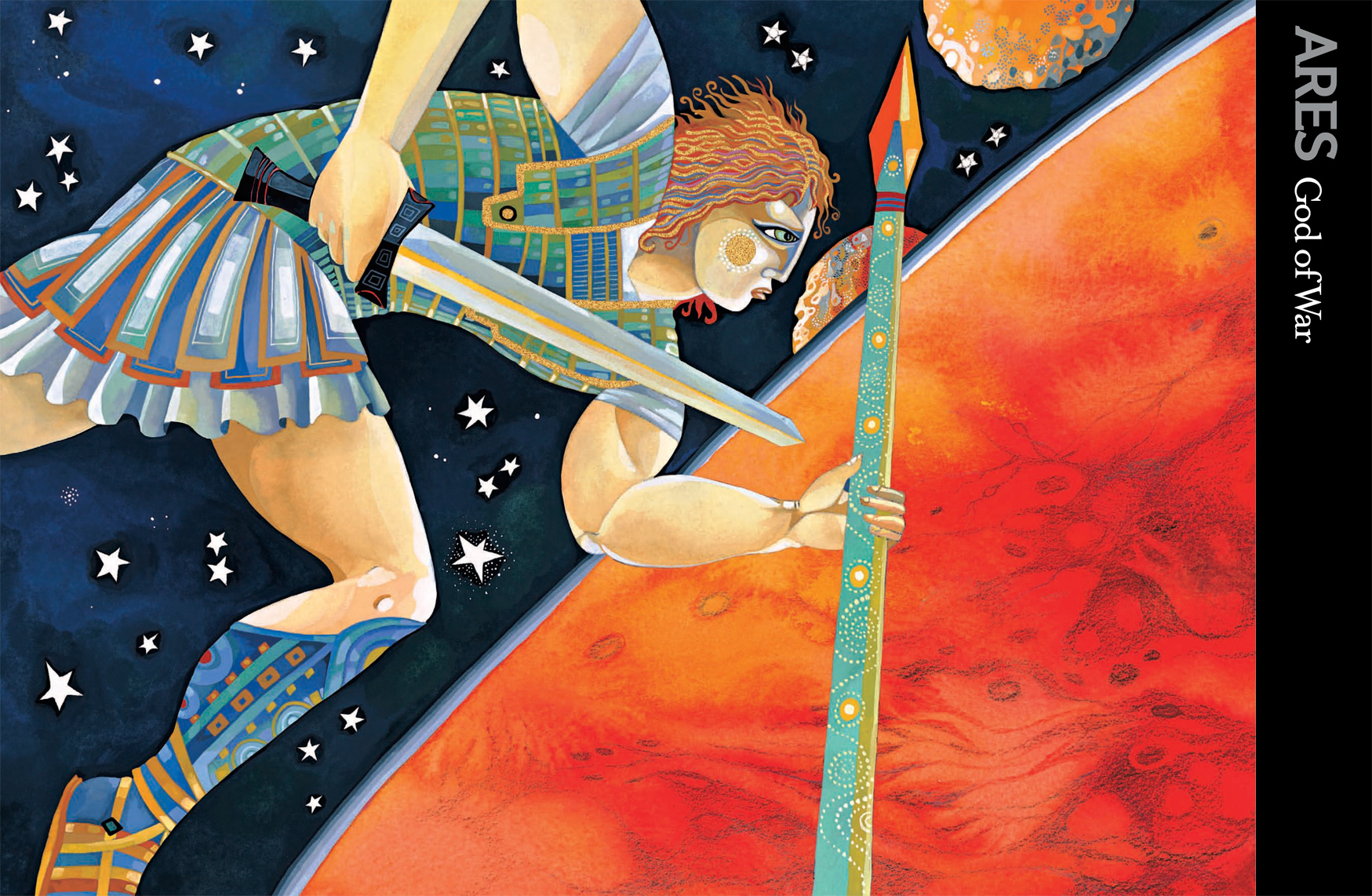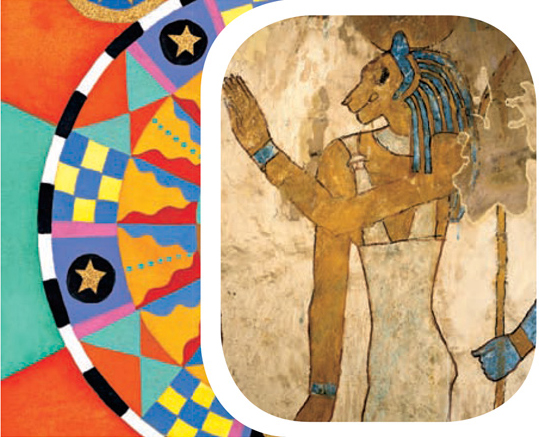


At long last, the king of the gods, Zeus, and the queen of the gods, Hera, had a child together, a son they named Ares. This son should have been remarkable. After all, he was the first fully royal son. His parents put their hopes in him.
Ares swiftly disappointed both. He was strong enough, exceedingly strong, in fact. And highly skilled at driving a chariot and throwing a spear. But he used his talents to ill effect. He was murderous and cowardly at the same time, inciting strife and hatred. A stain upon the world, and a bloody one at that. His parents abhorred him.
But no one could deny he had a certain physical magnetism. He raced across the world with calves like iron, the swiftest of all the gods. His hands seemed capable of grabbing anything, anything at all, and holding tight. His squared-off jaw looked capable of crushing bone. His lips were full and peaked, and the thought of what they were capable of made goddesses tremble. His eyes dared others to meet them.
Ares seems just plain nasty. Other gods of war in ancient cultures were likewise awful. Tyr, the god of war in Norse mythology, was also the god of strife; he went around causing trouble. Sekhmet, an ancient Egyptian goddess of war, loved bloodshed. When a war ended, the people had to give her a big celebration in order to soothe her, otherwise she would have continued killing until everyone was dead. War gods seemed to have in common a frenzy for destruction.

Aphrodite’s eyes took the dare. Why shouldn’t they? She was a goddess and a breathtaking beauty. The breathtaking beauty of the universe. And she was married to Hephaestus, a god certainly, but a blacksmith with a shriveled foot, who bent over a cauldron of molten metals all day long, coughing and wiping at his bleary, reddened eyes. He was ugly and growing uglier. She was willing to swear he limped more exaggeratedly each day. So it was her right to flirt with Ares.
Which she did. She and Ares did whatever they wanted right there in Hephaestus’ home, while the old god was out at his forge. They figured he’d never know.
But Helios, the sun god who was the child of Titans, saw them through the window. He liked Hephaestus; the two of them worked with fire and this gave them a special bond. He told.
Hephaestus couldn’t claim surprise. He’d always known it would be hard to hold on to his glorious wife. But the open wound seared. He had to take action. In a duel of brawn, he’d lose. So it had to be a duel of brains.
He set his great anvil upon its stand and hammered. He hammered all the rest of the day, all night long, all the next day, until the pile of thin metal loops stood taller than he was. Then he hammered them together into a metal net so fine it was as hard to see as a spiderweb, but it was strong—strong enough for the task. The following day, when Ares and Aphrodite were resting, Hephaestus spread a metal net over the two of them. When they woke, they found themselves ensnared.
Hephaestus quickly called together all the gods to come view the pair. The goddesses didn’t come, but every male god did, jeering and laughing, ready to stand in judgment.
Aphrodite betrayed her husband; Ares betrayed his brother. Hephaestus got the better of them: He trapped them in a metal net and held them up for public shame.
Hephaestus had done it—the weaker god, the ugly god, he’d prevailed over mighty Ares. The gods were quick to congratulate him, quick to celebrate that right had won over evil.
But then the gods looked at Aphrodite in all her stunning grace and felt instantly dizzy. Hermes turned to Apollo and asked what he wouldn’t give to be the one caught in that net with Aphrodite rather than Ares. It was a joke, but the arrow hit home. No one could blame Ares. And how could anyone place blame on that vision of loveliness, Aphrodite? Thus the two lovers went unpunished.
Embarrassed, Aphrodite fled to Cyprus, where she let her nymphs comfort her with perfumes and warm baths.
Ares felt more annoyance than anything else. In their time together, Aphrodite had borne him children, two of whom, Phobos and Deimos, accompanied him in his sackings and onslaughts. But who needed the trouble of her when she came with that madman of a husband? So he went on to other loves. And other hates. He was the god of war—what else is there to say?
